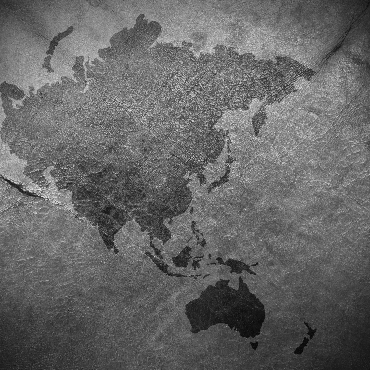Welcome to the fourth issue of the Indo-Pacific Monitor, the American Foreign Policy Council's newest e-bulletin. Edited by AFPC Fellow in Indo-Pacific Affairs Michael Sobolik, the Indo-Pacific Monitor is designed to track economic, political, and security developments in the Indo-Pacific region. Should you wish to subscribe to the Monitor directly, please click here, and it will email us your request.
CHINA DISRUPTS MEKONG FLOW TO FORCE CONCESSIONS
China is seeking to expand its campaign for control of the South China Sea into Southeast Asia via the Mekong River, one of the world's largest waterways, which flows from southern China through Laos, Thailand, Cambodia, and Vietnam. Beijing wants to dredge key segments of the river to enable heavier commercial and even military traffic, but local opposition in Thailand has thus far preserved the status quo. Beijing is responding with both carrots – targeted investments into Thailand, Laos, and Burma – and sticks (controlling the Mekong's downstream flow with eleven dams built in southern China). These dams are part of a larger effort to substitute hydropower for coal, but they also give China leverage over fishing and agriculture throughout Southeast Asia. (Bangkok Post, January 10, 2020)
MONGOLIA REAPS THE BENEFITS OF XINJIANG INSTABILITY
In December 2019, Russia shelved its longstanding desire to run a natural gas pipeline through the Altai Mountains into Xinjiang, China's westernmost territory. China had long opposed this proposed route; Xinjiang already benefits from Central Asian energy connectivity, and the global political attention on the internment of Uyghur Muslims introduces new risk to expensive investments there. Instead, Moscow and Beijing announced a joint inquiry into a route that travels from Siberia through Mongolia. Days before this announcement, Gazprom brought online a separate project running through Mongolia: the "Power of Siberia" gas pipeline, which will service energy demands as far south as Shanghai. A second Russia-Mongolia-China pipeline underscores Mongolia's increasing geopolitical significance in East Asia, especially as competing hubs like Xinjiang grow increasingly unstable. (Radio Free Asia, December 23, 2019)
CAMBODIA'S CHILD LABOR PROBLEM
Chinese investment has fueled a construction boom throughout Cambodia, but lax enforcement on material quality has resulted in multiple building collapses throughout the nation, with over sixty people dying in the span of seven months. It has also unearthed other problems lurking beneath the surface there. In particular, the recent death of six children in a building collapse in Kep, a coastal town, has underscored the broader issue of child labor that permeates the country. Cambodia has received preferential trade terms from the United States since 1997 under the Generalized System of Preferences (GSP), subject to meeting several conditions, one of which is eradicating child labor. The European Union is currently reviewing whether to extend similar preferential terms with Cambodia over human rights concerns, specifically the imprisonment of political opposition leader Kem Sokha. (Reuters, January 8, 2020)
BEIJING'S HONG KONG CRACKDOWN BOOMERANGS IN TAIWAN
Before the Hong Kong protests morphed into a mass movement, Taiwanese President Tsai Ing-wen was struggling in her reelection bid. Beijing's crackdown in Hong Kong, however, reversed Tsai's political prospects as voters in Taiwan saw Hong Kong's political autonomy bending under pressure from the Communist Party. The "One Country, Two Systems" arrangement that has allowed Hong Kong to maintain a separate economy and legal system from mainland China is the same format Xi Jinping often proposes for Taiwan, which the Party views as a renegade province. The recent political fallout in Hong Kong, however, has cast doubt on the viability of "One Country, Two Systems" and renewed Tsai's independence-leaning Democratic People's Party control of the presidency, with Tsai winning in a commanding 57% of the vote, and the Legislative Yuan. (New York Times, January 11, 2020)
NORTH KOREA'S KIM THREATENS RENEWED MISSILE TESTS
The diplomatic dance between America and North Korea continues. In December, Kim Jong-un, frustrated by the lack of sanctions relief from the U.S., suggested that he had a "Christmas present" in store for Washington and alluded to renewed nuclear and long-range missile tests. After foregoing tests during the holidays, Kim announced on December 31st that he no longer felt bound to his personal commitment to President Trump to refrain from such tests, and alluded to a new weapon that he would unveil "in the near future." Kim's unspecified delay leaves the door open for further discst of sanctions relief. (New York Times, December 31, 2019)
Want these sent to your inbox?
Subscribe

